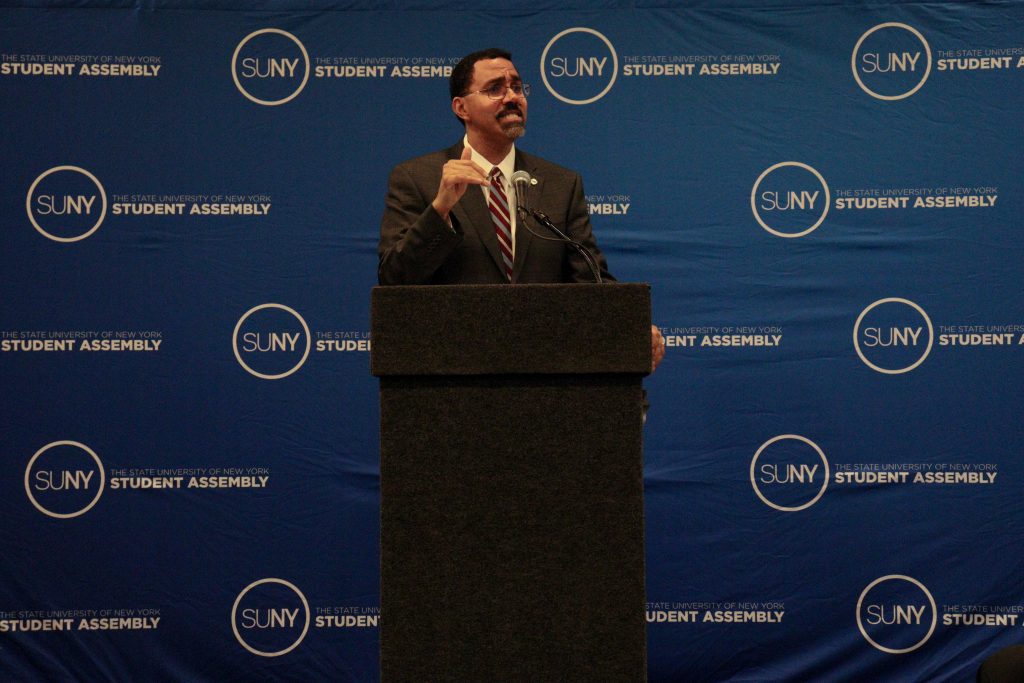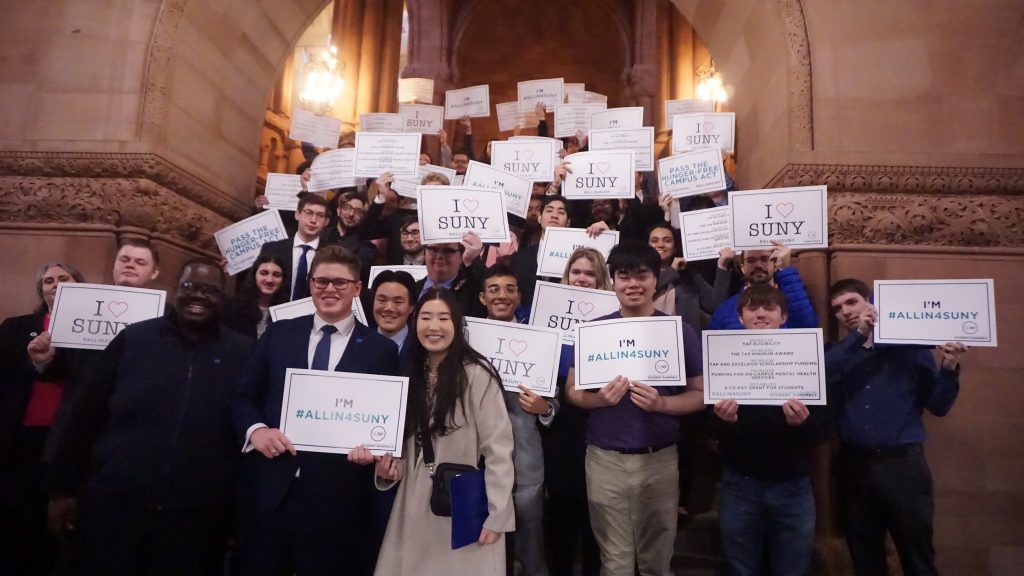
SUNY Chancellor John King made a surprise appearance at a meeting of the SUNY Student Assembly during its Albany Advocacy Day on February 14 before the students marched to the Capitol.
Newly-appointed Chancellor of the State University of New York John King supported the SUNY Student Assembly on Feb.14 during the group’s annual Advocacy Day in Albany, giving an impromptu speech and pledging support for more resources.
“SUNY is the most affordable high quality public higher education option in this country,” King said. “We need to keep it that way. When you’re advocating later today for increasing the TAP income threshold, when you’re advocating for more operating aid, more state investment in SUNY — that is about preserving that promise of affordable high-quality, public higher education.”
During the 2022-2023 fiscal year, Gov. Kathy Hochul made what she called an “historic investment” in the Tuition Assistance Program (TAP), offering a $150 million expansion to part-time students — qualifying an additional 75,000 students for state-assisted tuition payments.
However, the current financial ceiling for financially dependent undergraduate students is $80,000, which hasn’t changed since the 2000-2001 academic year. This amount does not reflect the current inflation rate and increased cost of living in New York State. Following the 2008 financial recession, the inflation rate remained under 2 percent. However, the rate increased to 6.1% in spring, 2021, and continues to grow. The Student Assembly asked for the TAP eligibility to be increased to $125,000 to accurately account for these economic factors.
“One of the critical things we need to do is make sure that we are responding to the economic development needs across the state and ensuring that students have good pathways to integrate jobs,” King said. “There are a number of streams of funding that the governor has proposed that would help us do that. I do think we’re gonna see a significant investment from the state in mental health services. The thing I’ve been trying to emphasize is that we have to provide more support on campus for students, faculty and staff. COVID has exacerbated mental health challenges throughout our country, and particularly on our campuses, and we’ve got to make sure we’re responsive.”
Along with increasing the financial ceiling for TAP recipients, the SUNYSA outlined its platform with several other major budget modifications that would address the accessibility for disabled students, mental health and food insecurity issues both public and private higher education students face in New York.

One of the modifications the SUNYSA is urging the Legislature to pass the “Hunger-Free Campus Act” (S.2913), sponsored by Rachel May, D-Syracuse, which aims to battle food scarcity among college students by “creating a hunger task force, designating a staff member as a SNAP point person, making SNAP more readily accessible on campus, creating campus food pantries, creating a student meal credit sharing program, as well as creating an annual student survey on hunger on campus,” according to the bill’s justification. It was first introduced to the Higher Education Committee on Jan. 25 but was amended and recommitted on Feb. 23.
Between 20% to 50% of college students experience food insecurity. When the body is experiencing extreme hunger, it is harder to focus and put full energy into the task at hand. Students who are food insecure have a higher chance of being in the lower 10% GPA and are 43% less likely to graduate. Nowhere in Gov. Hochul’s budget book does it directly address the food insecurity issue on higher education campuses.
The 2024 fiscal year budget is supposed to be adopted by April 1, 2023.









